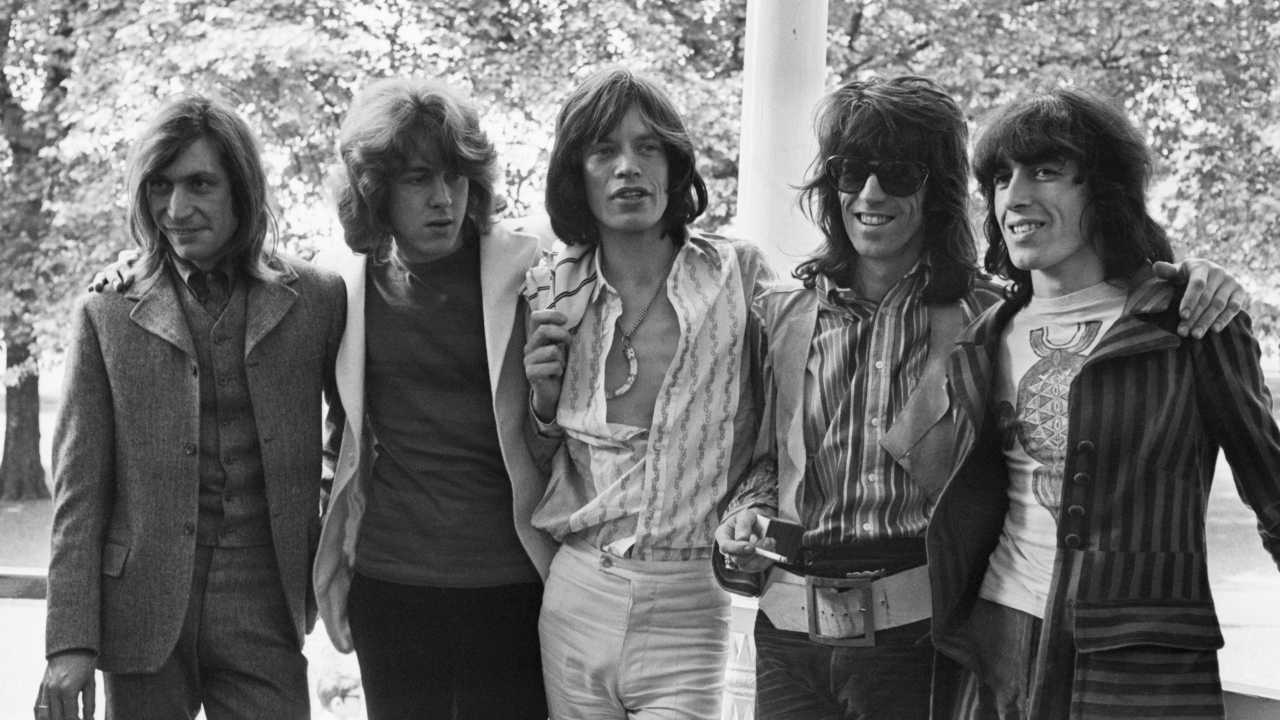About the song
“Honky Tonk Women” by The Rolling Stones is a classic rock track that captures the essence of the band’s raw, blues-infused sound. Released on July 4, 1969, this iconic single quickly became one of the band’s most enduring hits, celebrated for its infectious rhythm, gritty lyrics, and unforgettable riff.
The song was initially released as a standalone single, but it also appeared on the compilation album Through the Past, Darkly (Big Hits Vol. 2), released in September 1969. The success of “Honky Tonk Women” was immediate, topping the charts in multiple countries, including the UK and the US, and solidifying The Rolling Stones‘ reputation as one of the leading forces in rock music during that era.
Musically, “Honky Tonk Women” is a perfect blend of rock and roll and honky-tonk, characterized by its distinctive opening cowbell played by producer Jimmy Miller, followed by Keith Richards‘ iconic guitar riff. The song’s laid-back, yet powerful groove is anchored by Charlie Watts‘ steady drumming and Bill Wyman‘ bassline, while Mick Jagger‘s vocals deliver the story with a swagger that embodies the rebellious spirit of the late 1960s.
The lyrics of “Honky Tonk Women” paint a vivid picture of encounters with various women in bars and dance halls, celebrating the wild and carefree lifestyle that the band epitomized. Lines like “I met a gin-soaked bar-room queen in Memphis” and “She tried to take me upstairs for a ride” reflect the rough-and-tumble experiences of the band members on the road. The song’s chorus, with its catchy and memorable hook, invites listeners to join in the revelry: “It’s the honky tonk women, gimme, gimme, gimme the honky tonk blues.”
The Rolling Stones originally conceived “Honky Tonk Women” during a trip to Brazil, where they were inspired by the local country music. This influence is evident in the alternate version of the song, “Country Honk,” which appears on their 1969 album Let It Bleed. While “Country Honk” features a more stripped-down, acoustic arrangement, the single version of “Honky Tonk Women” is electrifying and polished, showcasing the band’s ability to transform a simple idea into a rock anthem.
The cultural impact of “Honky Tonk Women” is significant. It was released during a tumultuous period marked by political unrest, social change, and the countercultural movement. The song’s hedonistic themes and rebellious attitude resonated with a generation that was challenging traditional norms and seeking freedom from societal constraints. It became an anthem for the youth of the time, embodying the spirit of rebellion and liberation.
Even today, “Honky Tonk Women” remains a staple in The Rolling Stones‘ live performances and continues to be celebrated by fans of all ages. Its enduring popularity is a testament to the band’s ability to craft timeless music that transcends generations. The track’s infectious energy, combined with its raw and unfiltered portrayal of life on the edge, ensures that it remains a quintessential part of rock history.
In summary, “Honky Tonk Women” by The Rolling Stones is more than just a song; it is a defining moment in the band’s illustrious career. With its unforgettable riff, catchy chorus, and evocative lyrics, it captures the essence of rock and roll and the spirit of an era. Whether you’re a long-time fan or new to their music, the raw power and undeniable charm of “Honky Tonk Women” are sure to leave a lasting impression.
Video
Lyric
… I met a gin-soaked, bar-room queen in MemphisShe tried to take me upstairs for a rideShe had to heave me right across her shoulder‘Cause I just can’t seem to drink you off my mind… It’s the honky tonk womenGimme, gimme, gimme the honky tonk blues… I laid a divorcée in New York CityI had to put up some kind of a fightThe lady then she covered me with rosesShe blew my nose and then she blew my mind… It’s the honky tonk womenGimme, gimme, gimme the honky tonk bluesIt’s the honky tonk womenGimme, gimme, gimme the honky tonk blues… It’s the honky tonk womenGimme, gimme, gimme the honky tonk blues
